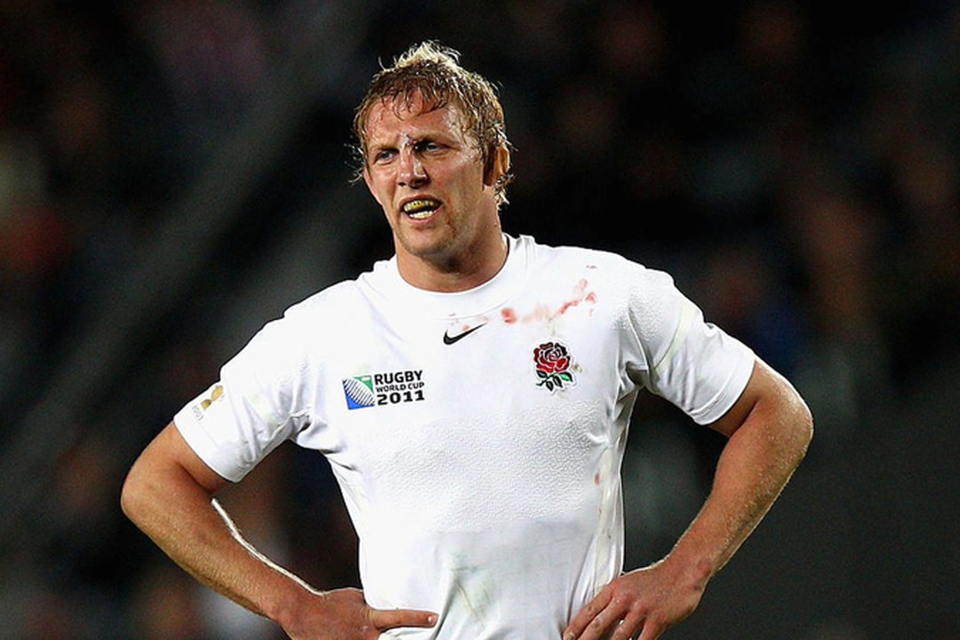Sports
Lewis Moody Diagnosed with Motor Neurone Disease: Impact on Sports

Former England rugby captain and 2003 World Cup winner Lewis Moody has been diagnosed with motor neurone disease (MND), highlighting ongoing concerns about the health risks faced by athletes in contact sports. MND is a progressive neurological condition that leads to muscle weakness, affecting a person’s physical abilities over time. Currently, there is no cure, but treatments can assist in managing symptoms.
Motor neurone disease occurs when motor neurones in the brain and spinal cord gradually stop sending messages to the muscles. This results in muscle wasting, stiffness, and weakness. The condition primarily affects individuals over the age of 50, with a significantly reduced life expectancy for those diagnosed. Early symptoms often include weak or stiff hands, leading to difficulties with gripping or holding objects. Other symptoms may involve weak legs, resulting in tripping and challenges with mobility. As the disease progresses, individuals may face difficulties in breathing, swallowing, and speaking.
Understanding Motor Neurone Disease
The diagnosis of MND typically involves a referral from a general practitioner to a neurologist, followed by various tests, including blood tests, nerve function assessments, and MRI scans. The progression of symptoms can vary widely among individuals, complicating the diagnostic process. In the UK alone, it is estimated that up to 5,000 adults are living with MND at any given time, with around 450 cases reported in Ireland. The overall lifetime risk of developing MND is approximately one in 300.
MND can manifest in several forms, with amyotrophic lateral sclerosis (ALS) being the most prevalent. ALS typically presents with limb weakness, muscle cramps, and stiffness, often leading to a life expectancy of two to five years post-diagnosis. Bulbar onset MND, or progressive bulbar palsy, affects the muscles associated with speech and swallowing, while progressive muscular atrophy (PMA) and primary lateral sclerosis (PLS) are rarer variations.
Sports and Increased Risk of MND
Recent research has drawn attention to the heightened risk of neurodegenerative diseases among athletes, particularly those involved in contact sports like rugby and football. A study conducted in 2022 by the University of Glasgow discovered that former international rugby players face a risk of neurodegenerative disease that is approximately 2.5 times higher than the general population. This study, led by consultant neuropathologist Prof Willie Stewart, revealed that former rugby players are at an astonishing 15 times greater risk of developing MND.
Prof Stewart expressed his concerns regarding the long-term implications for the sport. He stated, “I am genuinely concerned about what is happening in the modern game,” urging for more effective measures to address head injuries in rugby. His comments highlight the urgency of ongoing discussions surrounding player safety and the management of head injuries during training.
Similar findings have been reported for professional football players, with studies indicating an increased risk of neurodegenerative diseases among this group as well. The tragic cases of former athletes such as Doddie Weir, who lost his battle with MND, and Rob Burrow, another rugby league icon diagnosed with the disease, have further underscored these alarming trends. Recently, former players like Ed Slater, diagnosed with MND in 2022, and Stephen Darby, who retired at age 29 due to the condition, showcase the human impact of this disease within the sports community.
As the health implications for athletes become increasingly clear, the sports industry faces critical questions about player safety and long-term health outcomes. With the diagnosis of Lewis Moody, the conversation surrounding MND and its association with sports is likely to gain renewed attention, emphasizing the need for ongoing research and preventive measures to protect athletes from such debilitating conditions.
-

 Top Stories3 months ago
Top Stories3 months agoTributes Surge for 9-Year-Old Leon Briody After Cancer Battle
-

 Entertainment4 months ago
Entertainment4 months agoAimee Osbourne Joins Family for Emotional Tribute to Ozzy
-

 Politics4 months ago
Politics4 months agoDanny Healy-Rae Considers Complaint After Altercation with Garda
-

 Top Stories4 months ago
Top Stories4 months agoIreland Enjoys Summer Heat as Hurricane Erin Approaches Atlantic
-

 World5 months ago
World5 months agoHawaii Commemorates 80 Years Since Hiroshima Bombing with Ceremony
-

 Top Stories3 months ago
Top Stories3 months agoNewcastle West Woman Patricia Foley Found Safe After Urgent Search
-

 Top Stories5 months ago
Top Stories5 months agoFianna Fáil TDs Urgently Consider Maire Geoghegan-Quinn for Presidency
-

 World5 months ago
World5 months agoCouple Convicted of Murdering Two-Year-Old Grandson in Wales
-

 World5 months ago
World5 months agoGaza Aid Distribution Tragedy: 20 Killed Amid Ongoing Violence
-

 World5 months ago
World5 months agoAristocrat Constance Marten and Partner Convicted of Infant Murder
-

 Top Stories4 months ago
Top Stories4 months agoClimbing Errigal: A Must-Do Summer Adventure in Donegal
-

 Top Stories4 months ago
Top Stories4 months agoHike Donegal’s Errigal Mountain NOW for Unforgettable Summer Views









